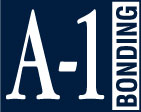AIA’s Chief Financial Officer, Mark Francis, provides his insights into important IRS rule changes that could potentially have both positive and negative impacts to your bail bond business.
In 2012, Many Tax Benefits Increase Due to Inflation Adjustments
by Mark Francis, CFO – AIA
by Mark Francis, CFO – AIA
For tax year 2012, personal exemptions and standard deductions will rise and tax brackets will widen due to inflation, the Internal Revenue Service announced today.
By law, the dollar amounts for a variety of tax provisions, affecting virtually every taxpayer, must be revised each year to keep pace with inflation. New dollar amounts affecting 2012 returns, filed by most taxpayers in early 2013, include the following:
The value of each personal and dependent exemption, available to most taxpayers, is $3,800, up $100 from 2011. The new standard deduction is $11,900 for married couples filing a joint return, up $300, $5,950 for singles and married individuals filing separately, up $150, and $8,700 for heads of household, up $200. Nearly two out of three taxpayers take the standard deduction, rather than itemizing deductions, such as mortgage interest, charitable contributions and state and local taxes.
Tax-bracket thresholds increase for each filing status. For a married couple filing a joint return, for example, the taxable-income threshold separating the 15-percent bracket from the 25-percent bracket is $70,700, up from $69,000 in 2011.
Credits, Deductions, and Related Phase Outs
For tax year 2012, the maximum earned income tax credit (EITC) for low- and moderate- income workers and working families rises to $5,891, up from $5,751 in 2011. The maximum income limit for the EITC rises to $50,270, up from $49,078 in 2011.The credit varies by family size, filing status and other factors, with the maximum credit going to joint filers with three or more qualifying children.
The foreign earned income deduction rises to $95,100, an increase of $2,200 from the maximum deduction for tax year 2011.
The modified adjusted gross income threshold at which the lifetime learning credit begins to phase out is $104,000 for joint filers, up from $102,000, and $52,000 for singles and heads of household, up from $51,000.
The $2,500 maximum deduction for interest paid on student loans begins to phase out for married taxpayers filing a joint return at $125,000 and phases out completely at $155,000, an increase of $5,000 from the phase out limits for tax year 2011. For single taxpayers, the phase out ranges remain at the 2011 levels.
Estate and Gift
For an estate of any decedent dying during calendar year 2012, the basic exclusion from estate tax amount is $5,120,000, up from $5,000,000 for calendar year 2011.
The annual exclusion for gifts remains at $13,000.
via aiasurety.com
